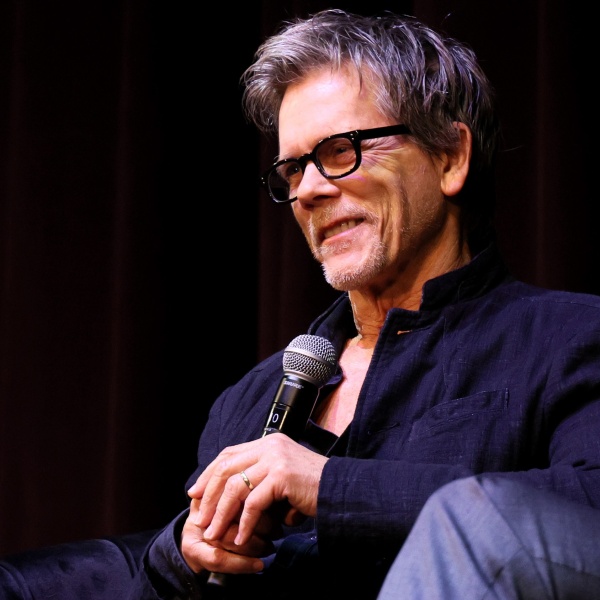The news that the remains of Julian Sands, an actor of extraordinary sensitivity and awareness, were identified in California’s San Gabriel mountains June 27 brings to a close a sad, uncertain chapter. Sands will have no date of death confirmed. He simply disappeared January 13 while hiking near Mt. Baldy amid severe storms, icy conditions, and possible avalanches. It took five days just to find his car. And yet, the location where he disappeared, a harsh wilderness, was only about 10 miles from Inland Empire urban sprawl. That’s California for you: the most densely populated areas abut what is truly “the wild.”
The nature of his disappearance was such that many of Sands’ admirers, myself included, did not grieve his loss at the time. There was always hope, however much of a long shot, that he might be found. He was an expert and avid hiker, after all. Maybe he found some shelter or rigged his own, and was just cut off. By January 25, however, his brother Nick Sands told the BBC, “I have come to terms with the fact he’s gone and for me that’s how I’ve dealt with it.”
Sands’ death is not just a tragedy, but a terrible loss for the arts. Though from Yorkshire, his long, thin face and lank build didn’t look strictly English. He easily played a Russian separatist character on the fifth season of “24” in 2006 — he was trying to assassinate the president of Russia, who in the universe of that show, was someone other than Vladimir Putin.
Villains came easily to Sands. One of his last major roles was as a pedophile in the miserable-ist chic WWII drama “The Painted Bird,” considered one of the most brutal films of recent vintage. Though that was an arthouse film and Venice premiere, Sands spent a good part of his career in outright genre roles — especially horror movies such as “Warlock,” “Arachnophobia,” and Dario Argento’s “The Phantom of the Opera.” Whenever he wore his hair long, it underscored an absolute shock that he wasn’t cast in “Interview with the Vampire.”
His genre work is one thing. It’s his romantic, mercurial turn in his breakout film, “A Room with a View,” that most people will picture immediately when they think of Sands. As George Emerson, an English youth from an upwardly mobile middle-class family (“I’m on the railways” George simply says of his profession), he’s coiled, tense, naïve, energetic — and given to unique responses like, in one fluid motion, falling to his knees in a simulation of prayer when accosted by a peddler in a Florentine cathedral. Sands’ George is a character whose inner life emanates from his pores, and it’s not hard to understand why young Englishwoman abroad Lucy Honeychurch would be attracted to him and confounded by him on a tour of Italy given for English travelers. He’ll barely say a word at dinner at the pensione, but the next day climbs a cypress tree overlooking a paradise-like Tuscan field to shout “Beauty! L’Espoir!” That’s him “reciting his creed” and invoking “the eternal Yes” his father says.
That moment, an eruption of unbridled naivety at the world and at nature, is so pure, even if, or especially if, it’s a little goofy. (Imagine something quite that strange happening in almost any other comfort-food, period costume drama with rom-com overtones since.) But all expressions of genuine wonder are, to an extent. That moment has left its imprint on my heart, and I have even been known, when driving across a particular high-rise bridge to the beach near my home to say, when reaching the top and being overcome with the staggering gorgeousness of the water, sand, and sky revealed below, to say “Beauty! L’Espoir!” also. But I’m not sure I would be so bold as to shout that literally from the treetops to a crowd as Sands’ George does. That is a model of guilelessness and emotional purity worth aspiring to.
It’s that openness to the universe and all that it might throw at you that I’d like to think Sands brought to his own way of communing with nature through his hiking — and to the way he met his end. He died doing what he loved.
For my part, though, it was hard to believe at the time his disappearance was announced that he really was gone. My IndieWire colleagues and I first heard the news that he was missing while having dinner in Park City, Utah, on the night before the first day of Sundance. With hindsight, we could have run an obit right then. But much like the four days of international news media obsession over the Titan submersible, where everyone imagined that the five travelers to the bottom of the North Atlantic might still be alive and at risk of running out of oxygen, this story had ended at the very beginning. We just didn’t realize it — or want to realize it. Of course, with hindsight, the most obvious explanation was that the submersible simply imploded at the start of its journey, its passengers also losing their lives doing what they loved doing. Of course, with hindsight, Sands was lost immediately.
Perhaps our collective denial of the tragedy of these incidents until there’s incontrovertible proof that these were tragedies is a kind of George Emerson guilelessness of its own. In his own way, Sands, with his unforgettable performance, one of cinema’s greatest expressions of optimism, had set the stage for how we’d approach his death.


